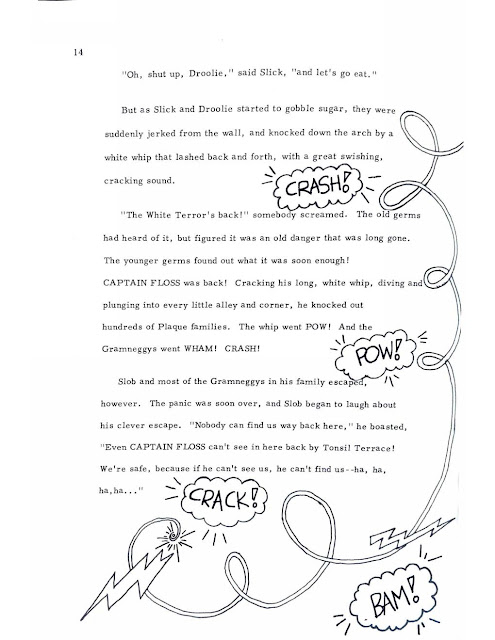One thing that caught my attention during my first attempt to read the Maxwell Institute Study Edition of the Book of Mormon: Another Testament of Jesus Christ is that Nephi mentioned that the fountain of living water represented the love of God in verse twenty-five of first Nephi chapter eleven:
“And it came to pass that I beheld that the rod of iron, which my father had seen, was the word of God, which led to the fountain of living waters, or to the tree of life; which waters are a representation of the love of God; and I also beheld that the tree of life was a representation of the love of God.” (1 Nephi 11:25)
When I discovered this recently, some colleagues that I spoke with in the temple acknowledged that a fountain of living water was mention in Lehi’s dream.
Since I started from the beginning of the Maxwell Institute Study Edition of the Book of Mormon to share my discoveries with you, I am going to expound on this because I just finished reading Nephi’s account of Lehi’s dream in the book of first Nephi chapter eight. When I reviewed chapter eight of first Nephi, I discovered that the word fountain was mentioned twice in Nephi’s account. He did say that the rod of iron “led by the head of the fountain,” and the second time that the fountain was mention is grim, stating in verses twenty-nine through thirty-two:
“And now I, Nephi, do not speak all the words of my father. But, to be short in writing, behold, he saw other multitudes pressing forward; and they came and caught hold of the end of the rod of iron; and they did press their way forward, continually holding fast to the rod of iron, until they came forth and fell down and partook of the fruit of the tree. And he also saw other multitudes feeling their way towards that great and spacious building. And it came to pass that many were drowned in the depths of the fountain; and many were lost from his view, wandering in strange roads.”
Nephi’s original account of Lehi’s dream barely mentions the fact that there was a fountain of living water in Lehi’s vision. Nephi’s account is only an abridgment of his father’s writings. It seems that he assumed that we would have the plates of Lehi in the latter-days. One may think that it is ironic that Nephi’s very brief abridgment of the plates of Lehi will replace the Book of Lehi, since the original manuscript, containing his writing, was lost during the translation of the Book of Mormon in the latter-days. Lehi probably stated that the fountain contained living water.
The following two questions may arise from this circumstance: Why did multitudes drown in the fountain when they sought the great and spacious building, traveling through the fountain of living water? Secondly, why does the fountain of living water and the tree of life both represent the love of God? The second question was asked from my wife last week as we discussed this.
Why did multitudes drown in the fountain when they sought the great and spacious building, traveling through the fountain of living water?
My answer to the first question is that when people learn of the love of God, tasting of the fruit of the tree of life, these people are more accountable, since they traveled along the “strait and narrow path, which came along by the rod of iron”. (1 Nephi 8:20) The iron rod is a representation of the word of God, which is also known as a two-edged sword. One must be careful of the edge of the sword facing you; furthermore, we must balance our knowledge of God as we are to fear and love him. Fear should come from our accountability to God to keep his covenants and commandments, for there are consequences and justice that needs to be answered for the knowledge of his covenants and commandments, if we do not keep them.
Why does the fountain of living water and the tree of life both represent the love of God?
When Jessica asked me this question, I answered her that I think that the tree of life represents the love of Heavenly Father, and the fountain of living water represents the love of Jesus Christ, for “In the last day, that great day of the feast, Jesus stood and cried, saying, If any man thirst, let him come unto me, and drink. He that believeth on me, as the scripture hath said, out of his belly shall flow rivers of living water.” (John 7:37-38)
"Whosoever drinketh of the water that I shall give him shall never athirst; but the water that I shall give him shall be in him a well of water springing up into everlasting life.” (John 4:14)
“And it came to pass that I beheld a tree, whose fruit was desirable to make one happy. And it came to pass that I did go forth and partake of the fruit thereof; and I beheld that it was most sweet, above all that I ever before tasted. Yea, and I beheld that the fruit thereof was white, to exceed all the whiteness that I had ever seen. And as I partook of the fruit thereof it filled my soul with exceedingly great joy; wherefore, I began to be desirous that my family should partake of it also; for I knew that it was desirable above all other fruit.” (1 Nephi 8:10-12)
Ponder these representations and descriptions of the love of God, and I further invite you to follow the promptings therefrom to feel the love of God. Pondering is a form of prayer, and God will send his spirit to abide with you as you remember and think of him.



























